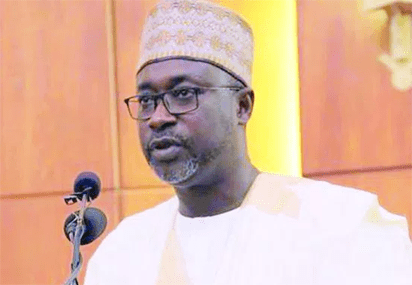 The Minister of Water Resources, Engineer Sulaiman Hassan Adamu has embarked on an advocacy to end open defecation in Nigeria.
The Minister of Water Resources, Engineer Sulaiman Hassan Adamu has embarked on an advocacy to end open defecation in Nigeria.
His first port of call today, September 5, leading a powerful delegation from his ministry, was the office of the Minister, Federal Capital Territory (FCT) Malam Muhammad Musa Bello.
Engineer Sulaiman Adamu told his FCT counterpart that his visit was to kick- start the “Clean Nigeria: Use the Toilet” campaign aimed at making Nigeria open-defecation-free by 2025.
He stressed the need to mobilize for an increase in sanitation budget line to ensure that the Water Supply, Sanitation and Hygiene (WASH) Action Plan of the Federal Government, to improve the sector, was achieved.
He appealed to the FCT Minister to declare a state of emergency on open defecation in the Federal Capital Territory.
The FCT Minister assured his Water Resources counterpart that necessary support is being given to relevant department in the territory to ensure that the goal of completely eradicating open defecation in the country is achieved, adding that already FCTA is partnering with the private sector for solar powered public toilets in the FCT.
Malam Muhammad Musa Bello said that he has directed that the Minister of State of the FCT, Hajiya Ramatu Tijjani Aliyu should coordinate activities for the success of the project in the FCT and ensure that FCT becomes a model worthy of emulation.
According to him, FCTA has six major water tanks under construction to aid in the distribution of water to newly opened districts in the territory, and that water was not a problem in the FCT as the Lower Usuma Dam was providing adequate water to service the Capital city.
“In the FCT, raw water supply is not the real issue. As you know, we have enough water at the Lower Usuma Dam which is annually supplemented by the basin transfer from the Gurara dam under your Ministry. And we have the water treatment plants which is adequate for the needs of the Capital city for a reasonable enough period of time to come.
“The main challenge is being able to reticulate and distribute the water to other newer phases of the FCT and I am pleased to say that we have a system of about six major water tanks under construction now and we are introducing projects that would bring in pumping stations to be able to supplement the water pressure.”






